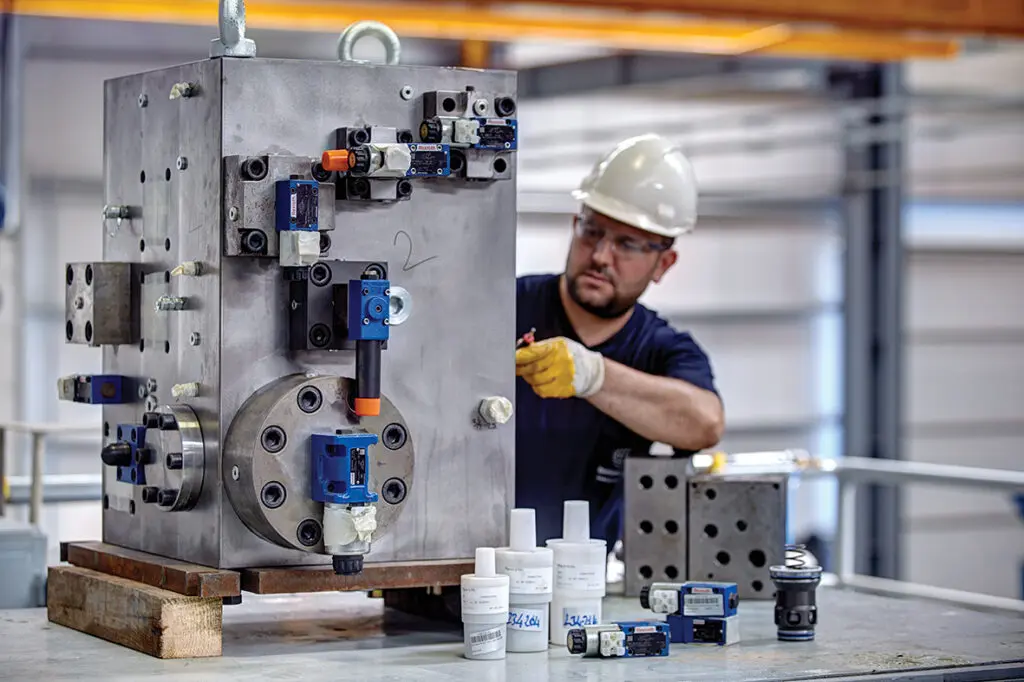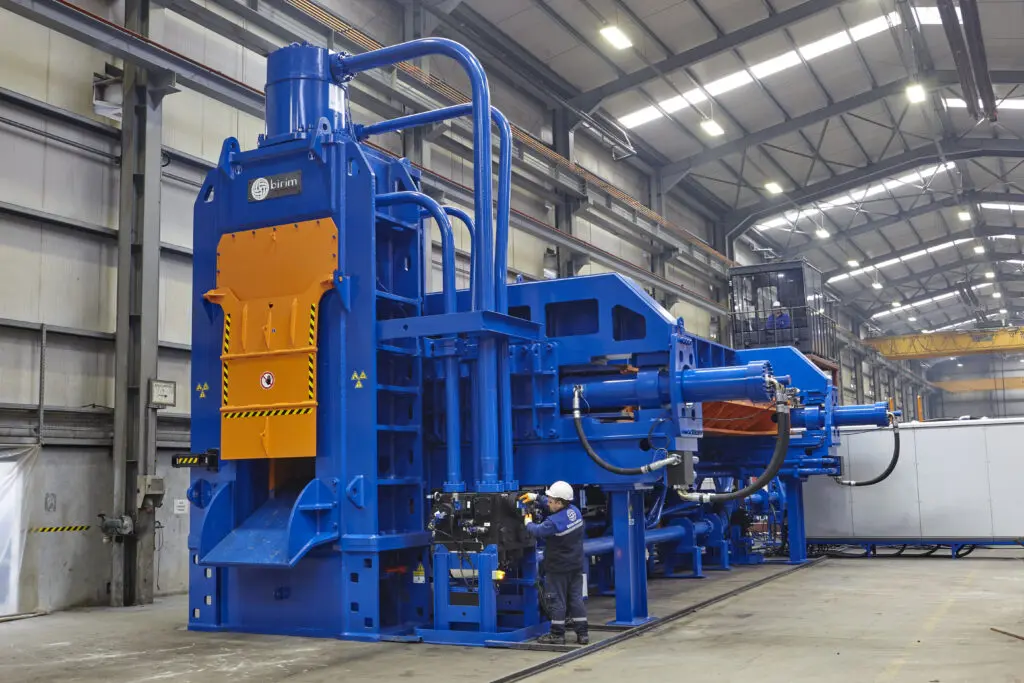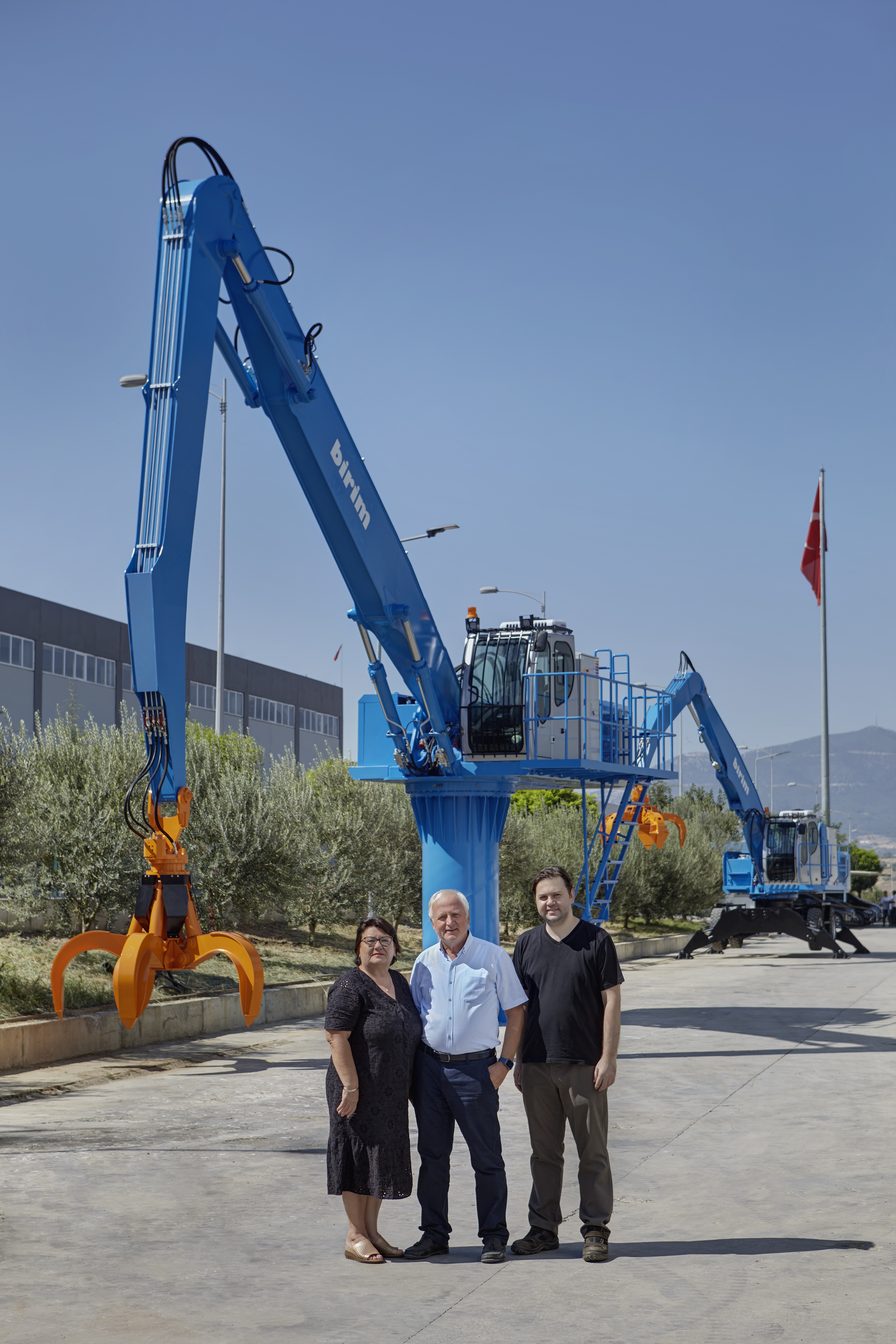Turkish recycling technology specialist Birim Makina has big ambitions for the future. Its growth strategy and steady stream of investments demonstrate a belief in pushing on and not waiting for ‘the right moment’.
‘I feel strongly that this year will be better than last year,’ says Aykut Karahan, ceo of Birim Makina. ‘The emails and phone calls our team is receiving are increasing. World trade is also shifting and creating some interesting business opportunities.’
‘In my country, both export business and local construction business is slow. As a result, most of the factories are producing at lower volumes and are trying to maximise their efficiencies while improving their environmental performance. That’s why my team and I focussed more on our company and worked on establishing our new factory next to our existing site in Izmir.’
Birim Makina sells around 20-30 shears, 15 balers, 15 material handlers and five chip processing plants in a year. In normal conditions, they last at least two decades although some equipment has been running for over 30 years.
New energy, new projects
The company recently took the opportunity to install new robotic welding lines, a laser sheet cutter and CNC machines. ‘We also started many digitalisation projects within the company to increase our overall efficiency level and response time for production and customer demand,’ Karahan adds.
The recycler is working on two major projects involving inclined shears. The first, for the biggest steel mill group in Turkey, has a 1 250 tonne shearing force and 70 tonne per hour production. The second, for the biggest group in Europe, has 1 100 tonnes shearing force and production of 30 tonnes per hour.
Recent installations have been completed in Australia, Georgia and Turkey: a three-ram baler, a 14m mobile material handler and another inclined shear. ‘We also have new design ideas to present to the market, mainly in the shears segment.’
Global reach
Birim Makina plans to increase marketing and service activities in the North American and Australian market this year. ‘We have been represented in these regions for quite a while with equipment running at various sites,’ says Karahan.
It is conducting market research in the US and Australia to develop the best growth strategy. Other markets of interest are India, the Middle East and North Africa.
To better serve the thriving European recycling market, Birim Europe was established in Germany in 2024. It is supported by agents at AD Recycling Solutions in the UK, RM International in Poland and, most recently, Barbara Belletti in Italy.


Having a global view on scrap management is a must, Karahan believes. ‘Throughout my career I have learned not to rely on any single market for more than 30% of our income. Instead, we should cater to multiple key markets and product segments to keep us immune in a crisis.
‘We try to spread our risk around the world by not focussing too much on individual countries. In terms of new markets, it’s simple: if a country has a positive recycling economy, then it is a target for us.’
Future investment
‘We have invested a lot over the last five years. For example, we spent EUR 2 million expanding our Izmir facility, another EUR 3 million on the new factory and EUR 3 million for new equipment.’
This has allowed his team to upgrade infrastructure and production equipment to reflect the latest technology. ‘The new factory has helped us more than double our welding capacity,’ the ceo says. ‘It also created more space in our main assembly workshop, which means more production is now possible.’
The tech provider has three welding robots in Izmir working around the clock. They are producing shear heads, press lids and machine walls.The new equipment has increased production speed and the quality of the parts produced.
‘The robots can weld 50 shears in a year – more than sufficient for now. Robots also help us resolve a shortage of qualified welders. Skilled workers have been hard to find for some years. An operator to run the robots, however, is easier to employ and train.’

Karahan goes on: ‘We have a very deep product line in each of the major scrap handling product groups because the market demands a lot and we follow demand.’
In the shear segment, Birim Makina has side and wing presses, and inclined and container shears. The same applies to the balers segment which includes the lid type, three ram, ELV and UBC balers. ‘To close the gap, we have been delivering material handlers – mostly stationary ones – to feed the shears, balers and shredders.’
The ceo adds: ‘Whatever the customer needs, and whatever material is out there, we have a solution. This is very rare in our industry.’ His team is currently exploring the benefits and application possibilities of AI.
Family vision
‘We are a family company so sustainability is the most important thing, not the profit,’ Karahan emphasises. Another key aspect is reputation, which can be hard to earn but easy to lose. ‘You can lose or earn money multiple times but trust is a one-time thing.
‘Another lesson I learned from my parents over the years is that if you stop investing in technology and quality then you move backwards. In hard times such as today we don’t invest as heavily as normally – but nor do we stop.
‘In recent months, we have received a new grinding machine and a new machining centre. Bad times are also good times for buying so we grab the opportunities when we can.’
Birim Makina’s oldest customer is Soyic Metal in Bursa, Turkey. The recycler processes steel sheets from pressing and stamping mills for the auto industry and delivers baled scrap to mills and foundries.
‘They received one of our first balers more than 30 years ago. Since my father’s original deal with Ramazan Soyic, we have delivered seven more. I sold the last two balers to Caner Soyic, who is his son and now managing director. It is a great feeling having such a long-running and close relationship.’
He adds: ‘We focus on the most important requirements of the customer and deliver it with a reasonable price. While doing so, we listen to the customer deeply and are flexible about their wishes. Our top management is always at hand for them, as if they were a member of our own family.’
Next generation talent
Karahan says he is like his parents in some ways, though different in others. His father is a trained mechanical engineer while his mother was a teacher. He joined the company 22 years ago after graduating as a mechanical engineer.
‘The real entrepreneur in the family is my father. He started the company and took all the risks. He is 100% a start-up entrepreneur while I am a more of a manager entrepreneur. I work on regulations, rules and procedures that ensure the business is sustainable. My goal is to scale up our business and keep it running smoothly through innovation. I feel real joy if I make things perform better. Optimisation is my main motivation.’
Karahan adds that family members have always had their own specialisms, allowing teamwork ‘while not stepping on each other’s feet’. Karahan’s father was focused on design and production, his mother took care of finance, and he tackled sales.
‘When my father wanted to slow down, I took over the production side of things as well. Mother’s role is still the same. All three of us are still in the company, although nowadays we have a bigger team including my cousin Sezen who was trained by my mother to be part of the next generation.’
Karahan talks of high levels of trust and transparency. ‘We can take decisions very fast and act accordingly. This is what customers love about us. If they want something, they know when it will be happening without losing momentum. This reflects the scrap industry, which is made up of lots of family businesses.’
Karahan imagines his two daughters or his son (due in June) may take over from him one day. ‘If they are interested in scrap and want to join, they are more than welcome. If not, I will support them either way.’
Big emotions
Consolidation is a given in the scrap industry, although Karahan believes family businesses remain strong and robust players. ‘We have to be practical. If the new generation is not joining the family company or the company has a weak market position, then selling it to bigger players is a typical way to keep it running. It is the healthy way to secure the jobs of the people and to keep competition in the market.’
The ceo believes it can be difficult for two family companies to merge because there are ‘too many emotions’ at stake. ‘When I look at the top four of our equipment production industry, I see two family owned and two big corporations. So it’s a draw. When you look at the bigger picture, there are still many more family companies in the game. I don’t feel bad about takeovers: there’s a good balance.’
Read more articles featured in our latest issue >>
Don't hesitate to contact us to share your input and ideas. Subscribe to the magazine or (free) newsletter.



